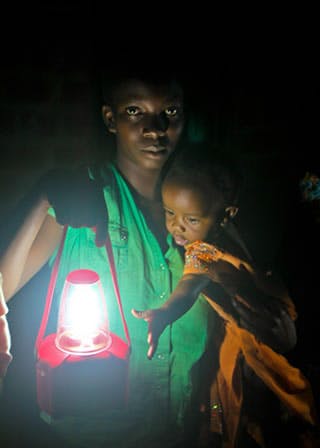On International Women’s Day, let’s remember that a crucial step to ending poverty comes through providing access to reliable and sustainable energy for girls and women.
 Providing clean energy solutions in homes and schools and equipping community health centers with the energy they need improves indoor air quality, supports girls getting an education, creates economic opportunity, and saves the lives of women, especially during childbirth.
Providing clean energy solutions in homes and schools and equipping community health centers with the energy they need improves indoor air quality, supports girls getting an education, creates economic opportunity, and saves the lives of women, especially during childbirth.
The United Nations Foundation’s Energy Access Practitioner Network brings together more than 1,600 businesses, investors, and civil society organizations delivering sustainable energy services to communities and households that lack access to grid electricity.
Some network members, like Solar Sister, provide women both with energy access and with economic opportunity. Using an Avon-style distribution system, the organization provides rural women with a “business in a bag” start-up kit of solar lanterns that they sell in their communities, along with business training and marketing support, to bring affordable and clean lighting to rural homes in East and Central Africa.
Solar lamps replace dirty and dangerous kerosene lanterns, and solar-powered cellphone chargers provide connectivity in communities with no grid power. Supporting these women entrepreneurs also increases the economic stability of the community as a whole.
But women also need energy access: The World Health Organization estimates that every year, 287,000 women worldwide die during pregnancy and childbirth, in part because many health facilities lack access to reliable – or even any – electricity.
Take a moment to envision a hospital where reliable electricity doesn’t exist: It’s typical for doctors and nurses to work using kerosene, candlelight, or even a flashlight between their teeth while trying to provide good care at night.
In Uganda, this was the reality for the Nawampiti medical clinic’s 30,000 patients until network member Innovation Africa installed a solar panel on the roof of the clinic. The medical clinic is located 15 miles from the nearest town, but with access to solar energy the people of Nawampiti can receive proper medical care any time of day or night.
On International Women’s Day, you can learn more about women lighting the way to development through the Energy Access Practitioner Network, and please join us in supporting the UN and the World Bank’s objective of ensuring universal access to modern energy services by 2030.
Follow @energyaccessPN on Twitter to learn more.



 View All Blog Posts
View All Blog Posts